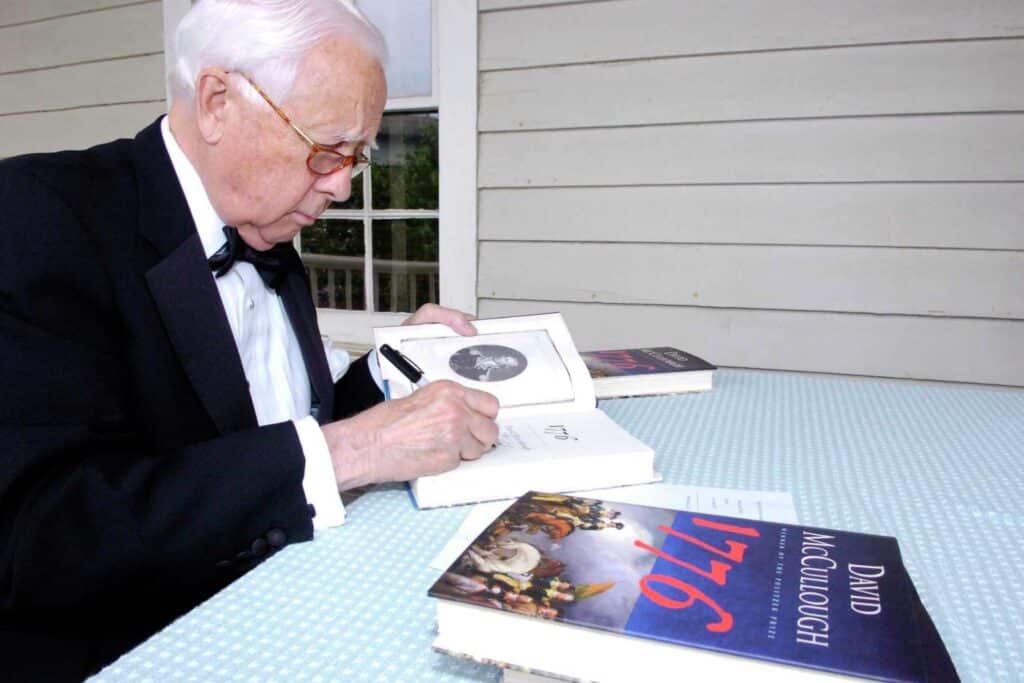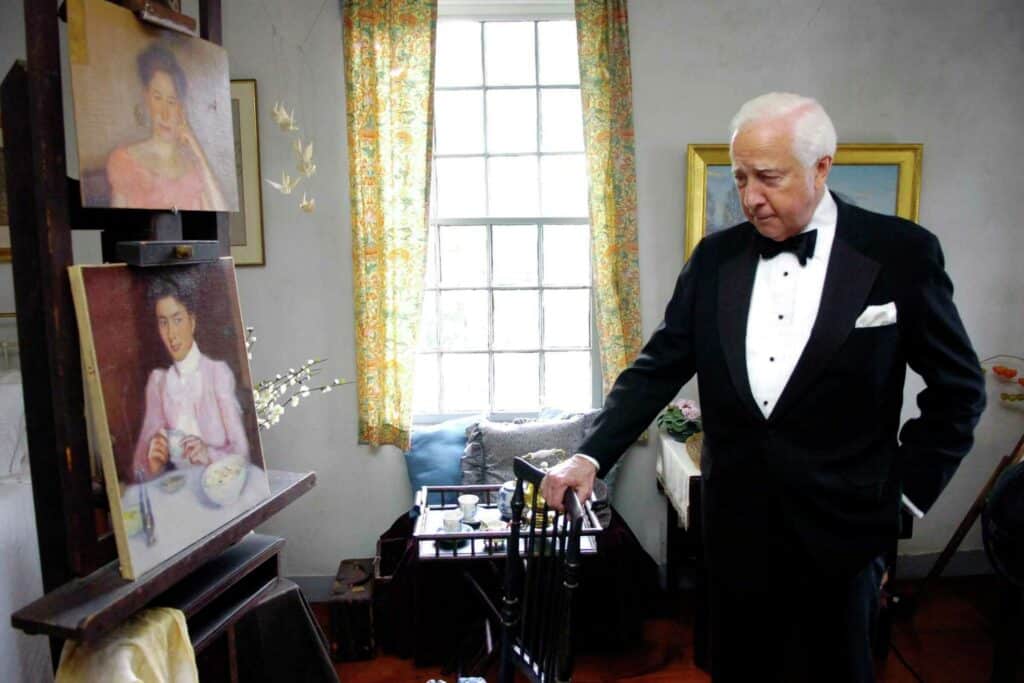By Ken Borsuk | Greenwich Time | Aug. 11, 2022
GREENWICH — Legendary historian David McCullough is being honored by the Greenwich Historical Society as its leader recalled him as “a national spokesman” for history and education.
McCullough died Sunday at the age of 89 at his home in Hingham, Mass. A two-time Pulitzer Prize winner and a 1955 graduate of Yale University, McCullough was the author of best-selling biographies of John Adams and Harry Truman and also wrote narrative-style nonfiction books about the first flight of the Wright brothers and the construction of the Brooklyn Bridge.
A highly sought-after speaker, McCullough had a distinct voice, narrating Ken Burns’ documentary “The Civil War” and “The American Experience” on PBS.
In 2007, McCullough came to town to give the keynote speech at the Greenwich Historical Society’s 75th anniversary event, which was a big thrill for Debra Mecky, the historical society’s executive director.
“It was exhilarating to be in his presence,” Mecky said. “Yet he was very easy to meet and have a conversation with.”
Calling it “a very fond memory,” she told of giving the famed historian a tour of the Bush-Holley House and the Historical Society campus. He was interested not only in the history of the building, Mecky said, but also in the role Cos Cob played as an art colony in the American Impressionist movement.

“He was very curious about the Bush-Holley House, and we found out at the time he was doing research for a book he was later to publish called ‘The Greater Journey: Americans In Paris’,” Mecky said.
The history of the Cos Cob art colony “overlapped with the time period he was researching, and he couldn’t have been more interested,” she said of McCullough. who was awarded the Presidential Medal of Freedom in 2016.
“He had all these questions, too, about the house and what was the population of Greenwich at the time. He was trying to probe to find out more about the context,” Mecky said. “He’d written so much about the American Revolution, and the house appealed to him on multiple levels because of all the connections to history.”
Her conversation with McCullough was “the most natural thing because he loved what we loved,” Mecky said.
Peter Malkin, a longtime supporter of the Greenwich Historical Society, also shared fond memories of McCullough from his speech in town and his skills as a writer and historian.
McCullough will be “warmly remembered” when the historical society celebrates its 90th anniversary in October with historian Doris Kearns Goodwin scheduled to speak, Malkin said.
“David McCullough energized supporters of the Greenwich Historical Society when he spoke brilliantly and enthusiastically at the 75th anniversary celebration of the society at the Tomes Higgins landmark Calvert Vaux House adjacent to Christ Church,” Malkin said. “His personal charm reflected the special quality of his writing, which focused upon the value of our republic and its great leaders.”
Bringing McCullough in for the event was Mecky’s choice. She had been a fan since his first book, “The Johnstown Flood,” which took place close to where Mecky and McCullough both grew up in Pennsylvania. She called the 1968 book “spellbinding.”
“It didn’t feel like reading a history book; it felt like reading a story from a master,” Mecky said.
Beyond the detailed research that went into his award-winning books, McCullough was also noted for storytelling talents.
“It was so easy to imagine yourself sitting at his foot and listening as he told you stories,” Mecky said. “That’s the art of narrative. He was a master at that.”
That narrative storytelling format made readers want to learn more about the topics, she said.
“If you don’t create a hook, then why should people be curious? Why should they care?” Mecky said. “People need that hook to want to get further understanding of something. It’s absolutely essential that we start by finding connections and finding the stories that people are the most interested in.
“He was a master at the art of telling a story,” she said. “And because of it, he was able to communicate to so many more people than might ordinarily read a biography of John Adams or any of the other people or events he wrote about.”
Mecky called McCullough “a master spokesman” for history, education and “the power of parents and grandparents taking children to historic sites.” His speech had that impact in Greenwich, she said, with many telling her that they made family trips historic sites such as Colonial Williamsburg after hearing him speak at the anniversary celebration.
“He was a perfect spokesman,” Mecky said.
